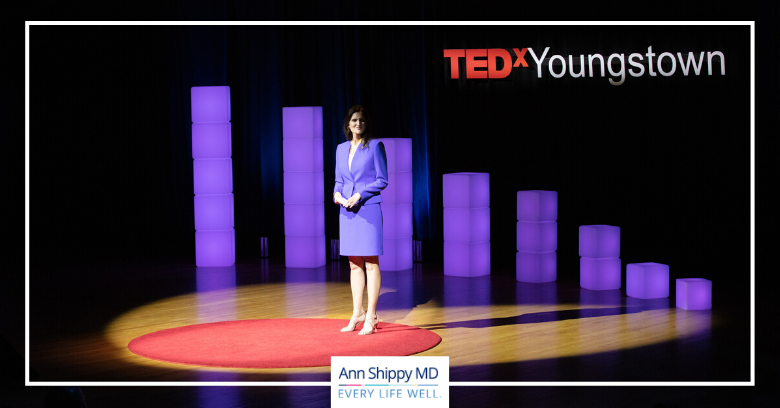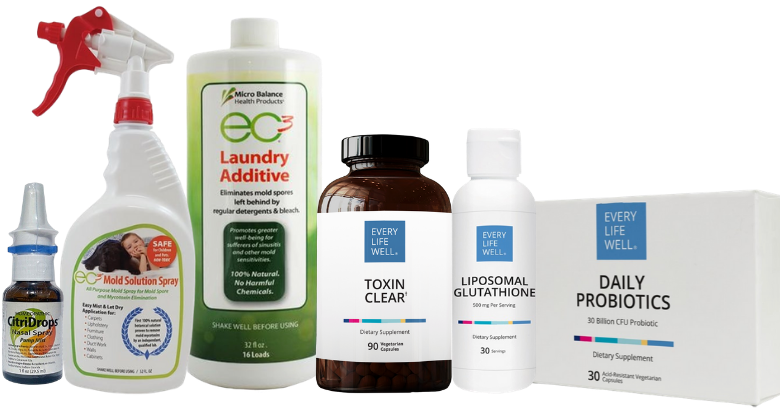The Nocebo Effect And Genetic Testing
It was once thought that our genes determined our medical destiny, that our health was out of our control and that nature was in the driver’s seat.
Now, more than ever, it is clear that so much of our health is in our control and that our genetics generally play a much more supportive role.
We know that the environment – not only our physical environment, but the environment we create for our body by what we eat, how we move, what we think and other important daily habits – determines the vast majority of our health and disease risk.
This is good news.
It means that we have a choice, and the choices we make about how we live really matter when it comes to wellness. How empowering!
This good news doesn’t mean that we should totally forget about our genetics, but that there is room to examine our own belief system about our genetics.
Knowing genetic information is very helpful for understanding root causes in a Functional Medicine model.
Understanding these details allows you to make proactive choices about your health and know where you might need additional support.
And on the other hand, there might be some downsides to knowing genetic information and even cases where this knowledge – and your mindset about it – cause more harm to health than good.
The nocebo effect is real and should be carefully considered when testing for genetic information.
In this article, you will learn more about:
- Genetic testing and SNPs – single nucleotide polymorphisms
- The link to epigenetics
- What is the nocebo (vs. placebo) effect and what does it have to do with SNPs?
- A healthy context for genetic information – you learn about yourself
Let’s dive in!
Genetic Testing And SNPs
When the human genome was successfully sequenced in 2003, medicine thought the secrets to curing disease were unlocked.
It turns out that knowing the genetic sequence didn’t provide much in the way of curing disease. Unfortunately, we were left with many more questions than answers.
In recent years, genetic research has turned to SNPs (called “snips”) – single nucleotide polymorphisms – that occur when one DNA base swaps for another. SNPs are incredibly tiny changes in the genetic code.
To put it in context, the genetic code for DNA might have hundreds or thousands of bases for a single enzyme or protein. And we are talking about one tiny change.
By the way, SNPs are how, over generations, evolution happens as humans adapt to a changing environment.
The problem is that changes in our environment – think industrialized food, sedentary lifestyle, exposures to toxins and chronic stress – have occurred much more rapidly than we can adapt to these changes.
If you have a SNP in your MTHFR, BRCA, APOE, FTO or another gene, it slightly alters the code and therefore the enzyme or other protein that the gene codes for is affected in some way.
With the popularity of consumer genetic tests, like 23andme, massive amounts of genetic information is at our fingertips. Often, all of this information is overwhelming to interpret, especially when it’s coupled with information about disease risk.
It can feel incredibly stressful to learn about your individual SNPs. And this stress is definitely the downside of testing.
We have to be very careful to put this genetic information in context.
The thing to understand here is that your genotype, your genetic sequence, isn’t the same as your phenotype, the genetic expression.
This is where the conversation gets really interesting!
The DNA sequence itself and all of your SNPs still only accounts for around 10% of disease risk. The rest, you guessed it, has to do with your environment. It has to do with all of the daily choices, the habits and your lifestyle that influence the epigenome of the cell.
The Role Of Epigenetics
We can’t change our genes, or our SNPs, because we are born with them, but we can influence the behavior or our genes.
This is the incredible science of epigenetics. (Check out my Epigenetics TEDx Talk for more on this topic.)
Our daily behaviors influence the environment around the genes and ultimately the genetic expression. We can choose behaviors that influence epigenetics away from health or towards it.
This is why you can have methylation SNPs (such as MTHFR or COMT) and still be a good methylator, or have perfect genetics and still need methylation support.
Or why some with the ApoE SNP will develop Alzheimer’s while others don’t.
Just like genetics are passed down through generations, epigenetics are passed down too.
This means that the epigenetic choices we make around diet, stress management and other lifestyle factors have truly lasting consequences.
Understanding that most of the genetic influence has to do with nurture instead of nature, the environment in which you live and create every day, raises the question about the nocebo effect and our genetics.
What influence does knowing our SNPs have on our health?
Placebo vs Nocebo
You may be familiar with the placebo effect, but have you heard of the nocebo effect?
In clinical trials, often one group will receive the treatment and the other will receive a placebo. A certain percentage of the people in the placebo group have positive outcomes, just from believing that they are receiving the treatment.
The mind is powerful. The nocebo effect is similar, but opposite.
With the nocebo effect, you believe in a negative outcome. This belief powerfully influences what happens.
The nocebo effect is caused by previous conditioning, experience or even the verbal suggestion or thought of an outcome and may lead to a decreased quality of life, HPA-axis stimulation (stress), negative health outcomes and giving up on treatment.
The nocebo effect applies to genetic testing.
Does knowing about a SNP – and the associated disease risk – contribute to the development of the disease? Science indicates that this is a real possibility.
A 2019 article titled, Learning one’s genetic risk changes physiology independent of actual genetic risk, explains that being told genetics changes physiology.
The study covers two experiments. In the first, participants received either high-risk or protective information about the CREB1 gene, which is associated with aerobic exercise capacity.
Individuals who were told they were in the high-risk group had lower carbon dioxide and oxygen exchange, exercise endurance and perceived exertion with exercise than the group who were told they had protective genetics.
In the second experiment, participants were told that they either have the high-risk genotype for FTO, which is associated with obesity, or the lower-risk, more protective genetics. Those who were told that they had higher risk for obesity, reported poor satiety (fullness from a meal) and increased worry.
This information also affected the physiology of satiety as measured by glucagon-like peptide 1 (GLP-1), where those who were told they had the protective genetics had much greater GLP-1 levels after eating.
All of these changes were independent of the individual’s actual genetic risk and more pronounced than what the genes themselves can account for.
This means that the belief about the genes is more powerful to your health than the SNP itself.
How To Use Genetic Information
Understanding genetics often gives us clues and pieces to your health puzzle, but given the nocebo effect with genetic information, how can we best utilize the information about personal SNPs to our benefit?
Here are some tips for incorporating genetic information into your healthy lifestyle:
1. Work with a practitioner. The patient-practitioner relationship is paramount and it is helpful to work with someone who can put your genetic information into the context of your whole health picture.
2. Examine your expectations. Uncovering your individual SNPs won’t provide a cure or a treatment for your health issues, but instead will give clues about your biochemistry, nutrition status and other factors. It won’t lead to a quick fix – the deep work is still in lifestyle change and supplementation. You may want to ask how you will use the results and how you will feel if you discover a certain genetic marker.
3. Put your SNPs in perspective. One SNP in one gene that codes for one enzyme, is still a very small fish in the big sea of the cell, the systems and the body as a whole. It really is quite astounding how resilient our human bodies can be with a little support.
4. Support your epigenetics. Epigenetics play a much larger role – even around 90% – when it comes to our health and disease risk. Don’t forget the basics of reducing stress, cleaning up toxins and supporting the microbiome. It always comes back to the foundations of diet and lifestyle. Remember that so much is in your control and focus on that.
The top 3 rules to support epigenetics are to chill out, clean up and play well with others (as I explain in my Tedx talk).
Here are some helpful articles for learning more about how to create supportive environment for your genes:
Chilling out:
Cleaning up toxins and supporting your body through after exposures:
- Air Quality Index – Forest Fires and Particulate Matter
- Surprising Places to find Mold in Your Home
- The Importance of Detoxification and How to Detox
Playing well with others – supporting a balanced microbiome:
You can’t change your genetics, but your epigenetics is largely in your hands. Work on creating the environment that your genes need to thrive.
Use this positive – and actionable – mindset to combat any nocebo effects that you encounter on your health journey.
References
- https://www.ncbi.nlm.nih.gov/pmc/articles/PMC2956605/
- https://www.ncbi.nlm.nih.gov/pmc/articles/PMC4573548/
- https://www.ncbi.nlm.nih.gov/pmc/articles/PMC2738872/
- https://journals.lww.com/painrpts/Fulltext/2019/06000/How_to_prevent,_minimize,_or_extinguish_nocebo.23.aspx
- https://pubmed.ncbi.nlm.nih.gov/30932047/














